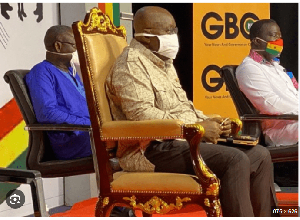Ghanaian dancehall artiste, Osagyefo, also known as ‘The Simple Entertainer’ has given thumbs up to former UN Secretary, Busumuru Kofi Annan for his statement on cannabis legalisation.
Kofi Annan was quoted by www.spiegel.de as suggesting to heads of nations to consider legalizing marijuana. The second African UN leader said:
“In my experience, good public policy is best shaped by the dispassionate analysis of what in practice has worked, or not. Policy based on common assumptions and popular sentiments can become a recipe for mistaken prescriptions and misguided interventions.
Nowhere is this divorce between rhetoric and reality, more evident than in the formulation of global drug policies, where too often emotions and ideology rather than evidence have prevailed.
Take the case of the medical use of cannabis. By looking carefully at the evidence from the United States, we now know that legalizing the use of cannabis for medical purposes has not, as opponents argued, led to an increase in its use by teenagers.
By contrast, there has been a near tripling of American deaths from heroin overdoses between 2010 and 2013, even though the law and its severe punishments remain unchanged.
Globally, the "war on drugs" has not succeeded. Some estimate that enforcing global prohibition costs at least $100 billion (€90.7 billion) a year, but as many as 300 million people now use drugs worldwide, contributing to a global illicit market with a turnover of $330 billion a year, one of the largest commodity markets in the world.
Prohibition has had little impact on the supply of or demand for drugs. When law enforcement succeeds in one area, drug production simply moves to another region or country, drug trafficking moves to another route and drug users switch to a different drug. Nor has prohibition significantly reduced use.
Studies have consistently failed to establish the existence of a link between the harshness of a country's drug laws and its levels of drug use. The widespread criminalization and punishment of people who use drugs, the over-crowded prisons, mean that the war on drugs is, to a significant degree, a war on drug users -- a war on people.
Africa is sadly an example of these problems. The West Africa Commission on Drugs, which my foundation convened, reported last year that the region has now become not only a major transit point between producers in Latin America and consumers in Europe, but an area where consumption is increasing. Drug money, and the criminality associated with it, is fostering corruption and violence. The stability of countries and the region as a whole is under threat.
I believe that drugs have destroyed many lives, but wrong government policies have destroyed many more. We all want to protect our families from the potential harm of drugs. But if our children do develop a drug problem, surely we will want them cared for as patients in need of treatment and not branded as criminals.”
According to the ace reggae-dancehall musician, “learned and famous people who knew the truth about cannabis usage hardly speak on marijuana legalization for fear of losing ‘their credibility’.”
Osagyefo made this comments in a media interaction in Accra shortly after Jamaican dancehall artiste, Turbulence visited him.
This comes days after series of arrests have been made on marijuana possession. Just few days ago, The Simple Entertainer was heard on Accra-based Pluzz fm pushing for the legalisation of marijuana.
Entertainment of Wednesday, 24 February 2016
Source: Zulu Nation













